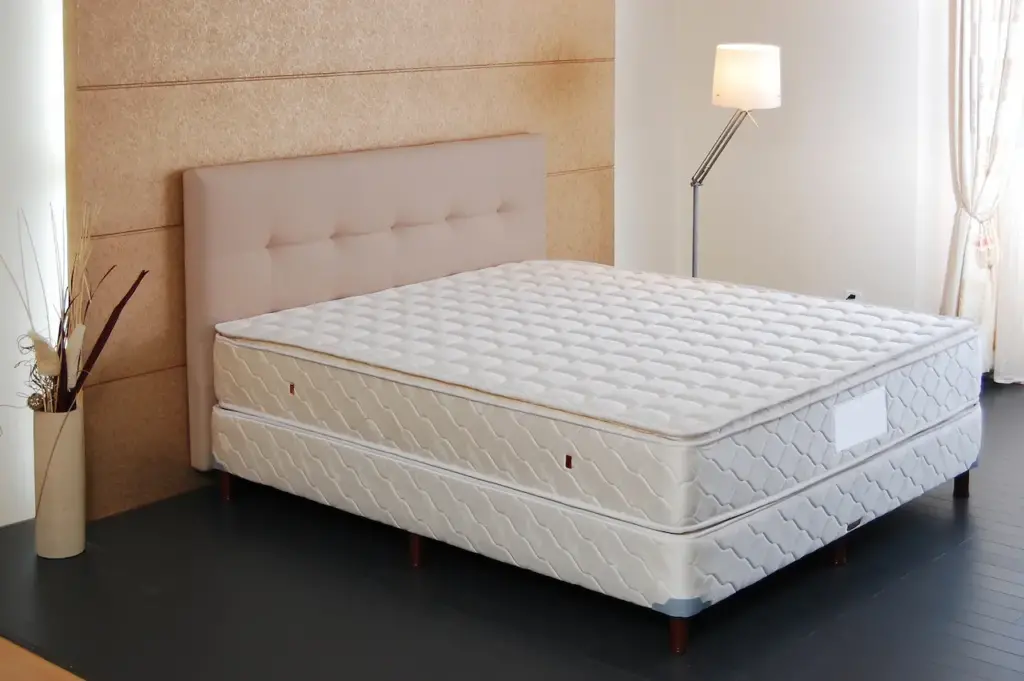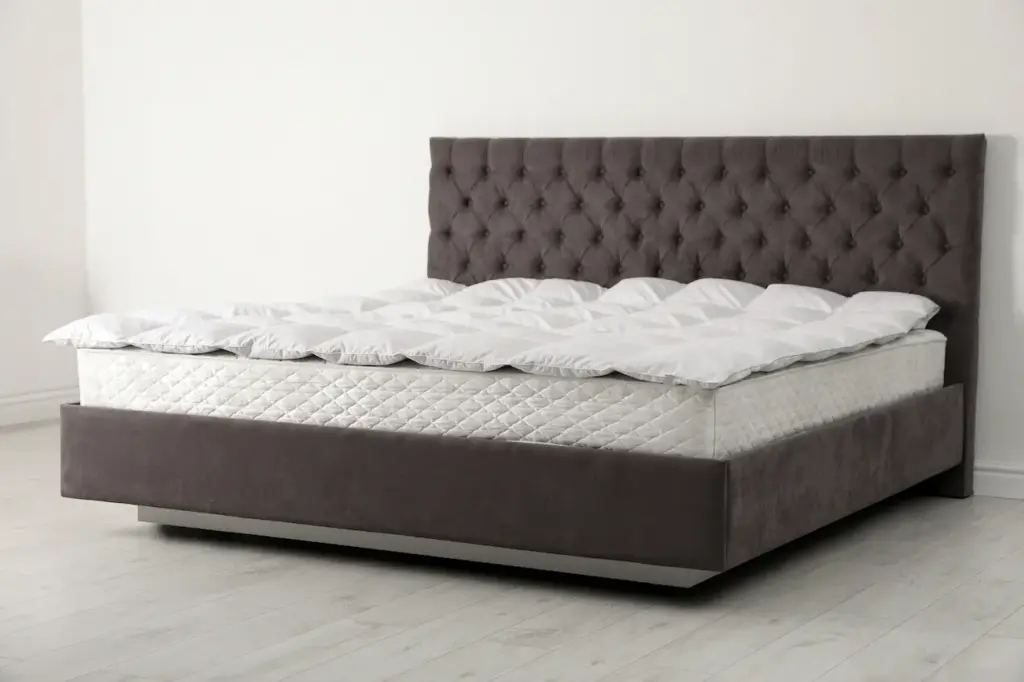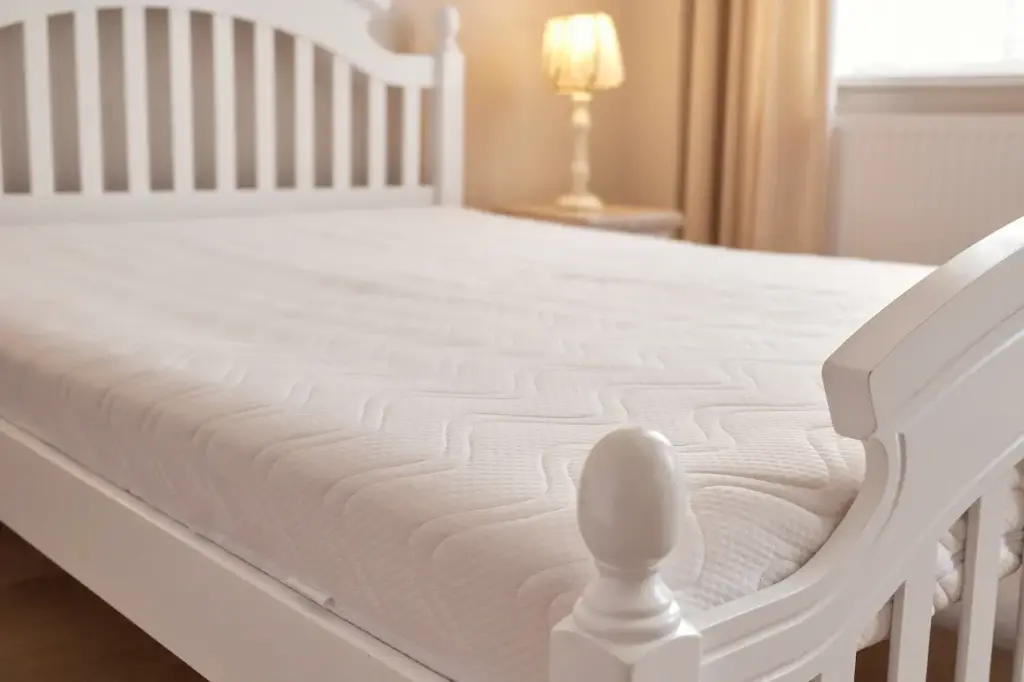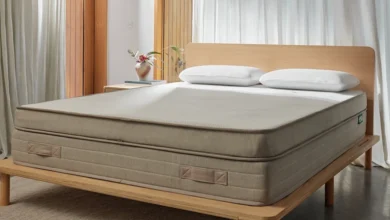Breaking in a New Mattress
Breaking in a New Mattress: 5 Ways and How Long It Takes
Let me guess. Your mattress (probably in a box) just arrived. With all your excitement, you unpacked and put it on your bedframe. As you lie down, the mattress does not feel as comfortable as you hoped or expected. It could be that the mattress feels a little firmer or less comfortable.
Sounds familiar? This is perfectly normal.
Like a pair of new leather shoes, mattresses need to go through a “break-in period before they reach their ultimate comfort. It’s not only the mattress that requires time to break in, but also your body. It can take from three to eight weeks to fully break in a mattress.

This article will explain how to break in a mattress quickly, what you can expect and how long the process may take. You should be able to make your mattress as comfortable and cozy as possible by the end of this article.
Let me guess. Your mattress (probably in a box) just arrived. With all your excitement, you unpacked and put it on your bedframe. As you lie down, the mattress does not feel as comfortable as it did when you bought it or as you had expected. It could be that the mattress feels a little firmer or less comfortable.
Sounds familiar? This is perfectly normal.
Like a pair of new leather shoes, mattresses need to go through a “break-in period before they reach their ultimate comfort. It’s not only the mattress that requires time to break in, but also your body. It can take from three to eight weeks to fully break in a mattress.
This article will explain how to break in a mattress quickly, what you can expect and how long the process may take. You should be able to make your mattress as comfortable and cozy as possible by the end of this article.
What Makes Your Mattress Feel Different?
It’s natural for a new mattress to feel different initially. Your old mattress has moulded around your body shape with time. It takes time for your mattress to adapt to the changes in your body shape, weight, and sleep preferences. This can cause some discomfort at first, but this is normal.
Even though you may feel that you made a bad decision, it’s important to give the mattress time before you return or exchange it. Most brands require that you try out the mattress at least for 21-30 days before returning it. You can break in your mattress properly with a little patience and effort.
What Can You Expect During a “Break-in Period”?
The foam layers, spring core and stitching are initially stiff on a new mattress, whether it is made of memory foam, coils, or latex. A brand-new mattress can feel firmer than you expected. Some brands call the initial firmness as a “false” firmness.
During the break-in process, the mattress undergoes changes. The body must also adjust to a new sleeping surface. You get used to sleeping in a particular way. When you switch to a new mattress, your muscles will need to adjust. This can cause some discomfort at first.
During the first period of break-in, your body will:
- You may sleep warm due to the increased surface contact of the mattress.
- You might feel sore or achy, but this is due to the muscles readjusting. This is similar to the feeling you get when you begin working out again after a break.
- The mattress may feel itchy due to its new fabric.
How Long Does It usually take to break down a Mattress?

The break-in time of a mattress depends on its type, how it differs from the previous mattress, and the frequency of use. Most mattresses will break in between three and eight weeks.
The break-in time for different mattress types
- The break-in period for latex mattresses is usually between two and three weeks. Despite this, latex mattresses soften only slightly after the break-in phase.
- It takes three to five weeks for most hybrid mattresses with coil bases and foam layers to fully break in.
- It can take 6 weeks for poly foam mattresses to break in.
- Memory foam mattresses require up to eight weeks to conform to your body contours.
The rule of thumb is that the more dense the foam, the longer it takes to penetrate.
How to Break In Your New Mattress?
You can speed up the process of breaking in your mattress and reduce initial discomfort.
1) Let it breathe:
It’s generally recommended that you let your mattress air for 24 hours before using it. It is recommended that you air the mattress for at least 72 hours if it is a bed in a box mattress. This has two advantages. First, it gets rid of the new mattress smell. Second, the VOC emission is significantly reduced. It also gives the mattress time to expand and decompress.
2) Roll, crawl, and walk on the mattress.
You read it right. walking on a memory foam or poly-foam mattress every day for two minutes, covering the entire surface area is one of the best methods to break it in. This helps the mattress to soften evenly, and it will break in quicker. It’s best to crawl over innerspring or hybrid mattresses so the weight doesn’t concentrate in one area.
You can also try rolling the mattress back and forth and squishing it where you sleep most often to encourage the areas that you sleep in to break-in faster.
3) Place weight plates on the floor or stacks of books.
Place a stack or weighing plates (less than 5-8 kg) on top of your mattress where you rest your shoulders and hips, since that is where the majority of body weight will be concentrated. This will soften the high-pressure zones faster.
The mattress will break in quicker if you keep the weights on for a longer period (preferably a few weeks).
3) Use it regularly.
You might feel tempted to sleep on the sofa or in your guest room if your mattress is not as comfortable. This would just prolong the break-in process. Not only does your mattress need to break in, but also your body. Regularly using the mattress for naps and sleep will help it stretch and loosen up quickly, and your muscles can adjust to the new alignment.
It might feel uncomfortable at first, but once it moulds to your body, the discomfort will be worth it.
5) Be patient
It can be frustrating to sleep on a mattress that does not feel right. You need to be patient, and allow the mattress to settle in. Waiting is usually worth it, as you will end up with a comfortable mattress that provides personalized support. Typically you should wait 21 days before deciding whether or not to keep a mattress.
How Does The Mattress Firmness Change After the Break-in?

The mattress will not soften, although it may change slightly in firmness. The mattress will also become more comfortable as it adapts to your body shape. This combination of two changes results in a more comfortable mattress after a break-in.
When Can You Return a Mattress?
You may not be getting the best mattress for you if you have made it past the break-in phase and still feel uncomfortable. If you have the option to return the mattress and receive a refund in such cases, it’s worth considering. You don’t want to be stuck with an uncomfortable mattress.
This would mean that you would have to order a new one and go through the process of breaking it in again. Here are a few tips to help select the right mattress for the second time.
Consider ordering a softer mattress:
- You may be experiencing upper back, shoulder or other body pains.
- You may find that your mattress is too firm.
- You may like to sink into your mattress.
- You need to relieve pressure on your hips and shoulders if you are a side sleeper.
Consider ordering a firmer mattress:
- You may feel stuck in your mattress if you sink too deeply.
- You may experience pain in your lower back or other parts of the body.
- You may find that your mattress is too soft.
- If you are a stomach-sleeper or have a body that is larger than average.
You can also order a mattress topper if you don’t have the option to return your mattress. You can add a latex topper to the bed to make it firmer. If you want to make it softer, then consider adding a foam mattress topper.
Wrapping up
You can see that your new mattress will need some time to break in before it offers optimal comfort. It’s not until after the break-in that you will know if the mattress suits you. It’s fair to allow it at least two weeks before deciding if you want to keep it, considering that the average person spends between 7-8 hours per day on their mattress. A typical mattress can last up to seven years.




